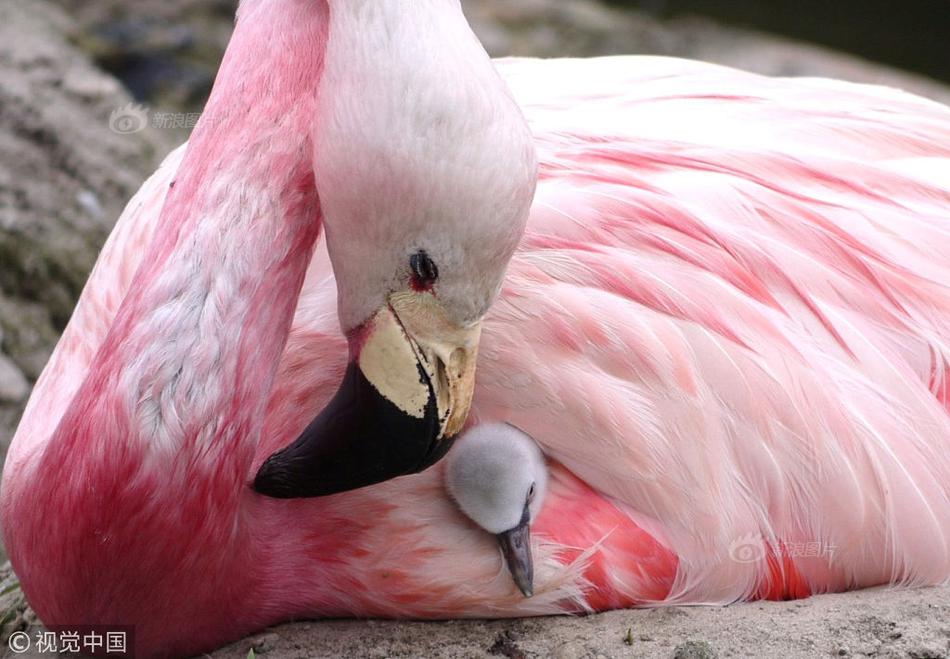wb777.co
2025-01-06
Chess grandmaster Magnus Carlsen returns to a tournament after a dispute over jeans is resolvedProposal for nurse practitioners at long term care homes welcome news at Ailsa Craig groundbreakingOttawa Senators (10-11-1, in the Atlantic Division) vs. Los Angeles Kings (13-8-3, in the Pacific Division) Los Angeles; Saturday, 7 p.m. EST BETMGM SPORTSBOOK LINE: Kings -123, Senators +102; over/under is 6 BOTTOM LINE: The Ottawa Senators visit the Los Angeles Kings after Adam Gaudette's two-goal game against the San Jose Sharks in the Senators' 4-3 win. Los Angeles has a 13-8-3 record overall and a 7-2-1 record in home games. The Kings have conceded 65 goals while scoring 71 for a +6 scoring differential. Ottawa is 10-11-1 overall and 4-6-0 on the road. The Senators have allowed 71 goals while scoring 70 for a -1 scoring differential. Saturday's game is the second time these teams meet this season. The Senators won the last meeting 8-7 in overtime. Gaudette scored two goals in the win. TOP PERFORMERS: Anze Kopitar has seven goals and 20 assists for the Kings. Adrian Kempe has six goals and five assists over the past 10 games. Brady Tkachuk has 11 goals and 12 assists for the Senators. Gaudette has scored five goals over the last 10 games. LAST 10 GAMES: Kings: 5-5-0, averaging 2.4 goals, 4.6 assists, 3.5 penalties and 8.1 penalty minutes while giving up 2.2 goals per game. Senators: 4-5-1, averaging 2.7 goals, 4.9 assists, 4.1 penalties and 9.6 penalty minutes while giving up 3.1 goals per game. INJURIES: Kings: None listed. Senators: None listed. ___ The Associated Press created this story using technology provided by Data Skrive and data from Sportradar . The Associated Presswb777.co
。
Cloud-Based Platforms: How It Enhances Employee Learning and GrowthPLAINS, Ga. (AP) — Newly married and sworn as a Naval officer, Jimmy Carter left his tiny hometown in 1946 hoping to climb the ranks and see the world. Less than a decade later, the death of his father and namesake, a merchant farmer and local politician who went by “Mr. Earl,” prompted the submariner and his wife, Rosalynn, to return to the rural life of Plains, Georgia, they thought they’d escaped. The lieutenant never would be an admiral. Instead, he became commander in chief. Years after his presidency ended in humbling defeat, he would add a Nobel Peace Prize, awarded not for his White House accomplishments but “for his decades of untiring effort to find peaceful solutions to international conflicts, to advance democracy and human rights, and to promote economic and social development.” The life of James Earl Carter Jr., the 39th and longest-lived U.S. president, ended Sunday at the age of 100 where it began: Plains, the town of 600 that fueled his political rise, welcomed him after his fall and sustained him during 40 years of service that redefined what it means to be a former president. With the stubborn confidence of an engineer and an optimism rooted in his Baptist faith, Carter described his motivations in politics and beyond in the same way: an almost missionary zeal to solve problems and improve lives. RELATED COVERAGE How co-writing a book threatened the Carters’ marriage The Latest: Former President Jimmy Carter is dead at age 100 Notable quotes by Jimmy Carter Carter was raised amid racism, abject poverty and hard rural living — realities that shaped both his deliberate politics and emphasis on human rights. “He always felt a responsibility to help people,” said Jill Stuckey, a longtime friend of Carter’s in Plains. “And when he couldn’t make change wherever he was, he decided he had to go higher.” Defying expectations Carter’s path, a mix of happenstance and calculation , pitted moral imperatives against political pragmatism; and it defied typical labels of American politics, especially caricatures of one-term presidents as failures. “We shouldn’t judge presidents by how popular they are in their day. That’s a very narrow way of assessing them,” Carter biographer Jonathan Alter told the Associated Press. “We should judge them by how they changed the country and the world for the better. On that score, Jimmy Carter is not in the first rank of American presidents, but he stands up quite well.” Later in life, Carter conceded that many Americans, even those too young to remember his tenure, judged him ineffective for failing to contain inflation or interest rates, end the energy crisis or quickly bring home American hostages in Iran. He gained admirers instead for his work at The Carter Center — advocating globally for public health, human rights and democracy since 1982 — and the decades he and Rosalynn wore hardhats and swung hammers with Habitat for Humanity. Yet the common view that he was better after the Oval Office than in it annoyed Carter, and his allies relished him living long enough to see historians reassess his presidency. “He doesn’t quite fit in today’s terms” of a left-right, red-blue scoreboard, said U.S. Transportation Secretary Pete Buttigieg, who visited the former president multiple times during his own White House bid. At various points in his political career, Carter labeled himself “progressive” or “conservative” — sometimes both at once. His most ambitious health care bill failed — perhaps one of his biggest legislative disappointments — because it didn’t go far enough to suit liberals. Republicans, especially after his 1980 defeat, cast him as a left-wing cartoon. It would be easiest to classify Carter as a centrist, Buttigieg said, “but there’s also something radical about the depth of his commitment to looking after those who are left out of society and out of the economy.” ‘Country come to town’ Indeed, Carter’s legacy is stitched with complexities, contradictions and evolutions — personal and political. The self-styled peacemaker was a war-trained Naval Academy graduate who promised Democratic challenger Ted Kennedy that he’d “kick his ass.” But he campaigned with a call to treat everyone with “respect and compassion and with love.” Carter vowed to restore America’s virtue after the shame of Vietnam and Watergate, and his technocratic, good-government approach didn’t suit Republicans who tagged government itself as the problem. It also sometimes put Carter at odds with fellow Democrats. The result still was a notable legislative record, with wins on the environment, education, and mental health care. He dramatically expanded federally protected lands, began deregulating air travel, railroads and trucking, and he put human rights at the center of U.S. foreign policy. As a fiscal hawk, Carter added a relative pittance to the national debt, unlike successors from both parties. Carter nonetheless struggled to make his achievements resonate with the electorate he charmed in 1976. Quoting Bob Dylan and grinning enthusiastically, he had promised voters he would “never tell a lie.” Once in Washington, though, he led like a joyless engineer, insisting his ideas would become reality and he’d be rewarded politically if only he could convince enough people with facts and logic. This served him well at Camp David, where he brokered peace between Israel’s Menachem Begin and Epypt’s Anwar Sadat, an experience that later sparked the idea of The Carter Center in Atlanta. Carter’s tenacity helped the center grow to a global force that monitored elections across five continents, enabled his freelance diplomacy and sent public health experts across the developing world. The center’s wins were personal for Carter, who hoped to outlive the last Guinea worm parasite, and nearly did. As president, though, the approach fell short when he urged consumers beleaguered by energy costs to turn down their thermostats. Or when he tried to be the nation’s cheerleader, beseeching Americans to overcome a collective “crisis of confidence.” Republican Ronald Reagan exploited Carter’s lecturing tone with a belittling quip in their lone 1980 debate. “There you go again,” the former Hollywood actor said in response to a wonky answer from the sitting president. “The Great Communicator” outpaced Carter in all but six states. Carter later suggested he “tried to do too much, too soon” and mused that he was incompatible with Washington culture: media figures, lobbyists and Georgetown social elites who looked down on the Georgians and their inner circle as “country come to town.” A ‘leader of conscience’ on race and class Carter carefully navigated divides on race and class on his way to the Oval Office. Born Oct. 1, 1924 , Carter was raised in the mostly Black community of Archery, just outside Plains, by a progressive mother and white supremacist father. Their home had no running water or electricity but the future president still grew up with the relative advantages of a locally prominent, land-owning family in a system of Jim Crow segregation. He wrote of President Franklin Roosevelt’s towering presence and his family’s Democratic Party roots, but his father soured on FDR, and Jimmy Carter never campaigned or governed as a New Deal liberal. He offered himself as a small-town peanut farmer with an understated style, carrying his own luggage, bunking with supporters during his first presidential campaign and always using his nickname. And he began his political career in a whites-only Democratic Party. As private citizens, he and Rosalynn supported integration as early as the 1950s and believed it inevitable. Carter refused to join the White Citizens Council in Plains and spoke out in his Baptist church against denying Black people access to worship services. “This is not my house; this is not your house,” he said in a churchwide meeting, reminding fellow parishioners their sanctuary belonged to God. Yet as the appointed chairman of Sumter County schools he never pushed to desegregate, thinking it impractical after the Supreme Court’s 1954 Brown v. Board decision. And while presidential candidate Carter would hail the 1965 Voting Rights Act, signed by fellow Democrat Lyndon Johnson when Carter was a state senator, there is no record of Carter publicly supporting it at the time. Carter overcame a ballot-stuffing opponent to win his legislative seat, then lost the 1966 governor’s race to an arch-segregationist. He won four years later by avoiding explicit mentions of race and campaigning to the right of his rival, who he mocked as “Cufflinks Carl” — the insult of an ascendant politician who never saw himself as part the establishment. Carter’s rural and small-town coalition in 1970 would match any victorious Republican electoral map in 2024. Once elected, though, Carter shocked his white conservative supporters — and landed on the cover of Time magazine — by declaring that “the time for racial discrimination is over.” Before making the jump to Washington, Carter befriended the family of slain civil rights leader Martin Luther King Jr., whom he’d never sought out as he eyed the governor’s office. Carter lamented his foot-dragging on school integration as a “mistake.” But he also met, conspicuously, with Alabama’s segregationist Gov. George Wallace to accept his primary rival’s endorsement ahead of the 1976 Democratic convention. “He very shrewdly took advantage of his own Southerness,” said Amber Roessner, a University of Tennessee professor and expert on Carter’s campaigns. A coalition of Black voters and white moderate Democrats ultimately made Carter the last Democratic presidential nominee to sweep the Deep South. Then, just as he did in Georgia, he used his power in office to appoint more non-whites than all his predecessors had, combined. He once acknowledged “the secret shame” of white Americans who didn’t fight segregation. But he also told Alter that doing more would have sacrificed his political viability – and thus everything he accomplished in office and after. King’s daughter, Bernice King, described Carter as wisely “strategic” in winning higher offices to enact change. “He was a leader of conscience,” she said in an interview. Rosalynn was Carter’s closest advisor Rosalynn Carter, who died on Nov. 19 at the age of 96, was identified by both husband and wife as the “more political” of the pair; she sat in on Cabinet meetings and urged him to postpone certain priorities, like pressing the Senate to relinquish control of the Panama Canal. “Let that go until the second term,” she would sometimes say. The president, recalled her former aide Kathy Cade, retorted that he was “going to do what’s right” even if “it might cut short the time I have.” Rosalynn held firm, Cade said: “She’d remind him you have to win to govern.” Carter also was the first president to appoint multiple women as Cabinet officers. Yet by his own telling, his career sprouted from chauvinism in the Carters’ early marriage: He did not consult Rosalynn when deciding to move back to Plains in 1953 or before launching his state Senate bid a decade later. Many years later, he called it “inconceivable” that he didn’t confer with the woman he described as his “full partner,” at home, in government and at The Carter Center. “We developed a partnership when we were working in the farm supply business, and it continued when Jimmy got involved in politics,” Rosalynn Carter told AP in 2021. So deep was their trust that when Carter remained tethered to the White House in 1980 as 52 Americans were held hostage in Tehran, it was Rosalynn who campaigned on her husband’s behalf. “I just loved it,” she said, despite the bitterness of defeat. Reevaluating his legacy Fair or not, the label of a disastrous presidency had leading Democrats keep their distance, at least publicly, for many years, but Carter managed to remain relevant, writing books and weighing in on societal challenges. He lamented widening wealth gaps and the influence of money in politics. He voted for democratic socialist Bernie Sanders over Hillary Clinton in 2016, and later declared that America had devolved from fully functioning democracy to “oligarchy.” Yet looking ahead to 2020, with Sanders running again, Carter warned Democrats not to “move to a very liberal program,” lest they help re-elect President Donald Trump. Carter scolded the Republican for his serial lies and threats to democracy, and chided the U.S. establishment for misunderstanding Trump’s populist appeal. He delighted in yearly convocations with Emory University freshmen, often asking them to guess how much he’d raised in his two general election campaigns. “Zero,” he’d gesture with a smile, explaining the public financing system candidates now avoid so they can raise billions. Carter still remained quite practical in partnering with wealthy corporations and foundations to advance Carter Center programs. Carter recognized that economic woes and the Iran crisis doomed his presidency, but offered no apologies for appointing Paul Volcker as the Federal Reserve chairman whose interest rate hikes would not curb inflation until Reagan’s presidency. He was proud of getting all the hostages home without starting a shooting war, even though Tehran would not free them until Reagan’s Inauguration Day. “Carter didn’t look at it” as a failure, Alter emphasized. “He said, ‘They came home safely.’ And that’s what he wanted.” Well into their 90s, the Carters greeted visitors at Plains’ Maranatha Baptist Church, where he taught Sunday School and where he will have his last funeral before being buried on family property alongside Rosalynn . Carter, who made the congregation’s collection plates in his woodworking shop, still garnered headlines there, calling for women’s rights within religious institutions, many of which, he said, “subjugate” women in church and society. Carter was not one to dwell on regrets. “I am at peace with the accomplishments, regret the unrealized goals and utilize my former political position to enhance everything we do,” he wrote around his 90th birthday. Pilgrimages to Plains The politician who had supposedly hated Washington politics also enjoyed hosting Democratic presidential contenders as public pilgrimages to Plains became advantageous again. Carter sat with Buttigieg for the final time March 1, 2020, hours before the Indiana mayor ended his campaign and endorsed eventual winner Joe Biden. “He asked me how I thought the campaign was going,” Buttigieg said, recalling that Carter flashed his signature grin and nodded along as the young candidate, born a year after Carter left office, “put the best face” on the walloping he endured the day before in South Carolina. Never breaking his smile, the 95-year-old host fired back, “I think you ought to drop out.” “So matter of fact,” Buttigieg said with a laugh. “It was somehow encouraging.” Carter had lived enough, won plenty and lost enough to take the long view. “He talked a lot about coming from nowhere,” Buttigieg said, not just to attain the presidency but to leverage “all of the instruments you have in life” and “make the world more peaceful.” In his farewell address as president, Carter said as much to the country that had embraced and rejected him. “The struggle for human rights overrides all differences of color, nation or language,” he declared. “Those who hunger for freedom, who thirst for human dignity and who suffer for the sake of justice — they are the patriots of this cause.” Carter pledged to remain engaged with and for them as he returned “home to the South where I was born and raised,” home to Plains, where that young lieutenant had indeed become “a fellow citizen of the world.” —- Bill Barrow, based in Atlanta, has covered national politics including multiple presidential campaigns for the AP since 2012.Intrusion stock plunges to 52-week low of $0.59 amid steep decline
Brighton were booed off after their winless run was stretched to six Premier League games by a frustrating goalless draw against away-day strugglers Brentford. Albion dominated for large periods on a foggy evening at the Amex Stadium and hit the woodwork inside four minutes through Julio Enciso. Bees goalkeeper Mark Flekken also made a string of important saves before being forced off injured in the 36th minute, albeit his replacement Hakon Valdimarsson was rarely tested on his Premier League debut. Brentford, who remain without a top-flight away win this term, had an early Yoane Wissa finish ruled out for offside following VAR intervention but barely threatened, despite an improved second-half showing. The Seagulls remain 10th ahead of Monday’s trip to Aston Villa, with Thomas Frank’s visitors a position and two points below moving towards their New Year’s Day showdown with Arsenal. Brighton have plummeted from second place to mid-table amid a poor run of form which has increased scrutiny on head coach Fabian Hurzeler. Seagulls chief executive Paul Barber called for perspective from fans in his programme notes after revealing he revealed emails “full of doom and gloom” following the recent 3-1 home defeat to rivals Crystal Palace. Enciso, one of two players recalled by Hurzeler following Saturday’s 1-1 draw at West Ham, almost gave Albion a dream start. A poor pass from Bees goalkeeper Flekken was intercepted by Carlos Baleba and, following a neat layoff from Joao Pedro, Paraguay forward Enciso curled against the right post. Brentford arrived in Sussex with the worst away record in the division, having previously taken a solitary point from 24 available this term. Flekken saved well from Baleba and then collected a tame header from the unmarked Enciso before the away side thought they had snatched a 13th-minute lead. After being slipped in by Mads Roerslev at the end of a swift counter-attack, Wissa thumped high into the net beyond Seagulls keeper Bart Verbruggen only to be ruled marginally offside. Flekken made further saves from Brajan Gruda and Matt O’Riley before hurting himself keeping out a deflected Kaoru Mitoma cross and being replaced by 23-year-old Iceland international Valdimarsson. Brentford remained on the back foot and, aside from Wissa’s disallowed effort, offered little going forward in a one-sided opening period which somehow ended level. Brighton defender Jan Paul van Hecke produced a crucial block to deny Wissa as the west London club began the second half brightly before Christian Norgaard’s ambitious effort deflected wide amid groans from increasingly restless home fans. Hurzeler responded with a triple change, introducing Yasin Ayari, Simon Adingra and Yankuba Minteh in place of O’Riley, Gruda and Mitoma. Albion forward Pedro then escaped punishment in the 76th minute after swinging an arm at Bees substitute Yehor Yarmoliuk without making contact before defender Ben Mee became the second visiting player to depart injured. The introduction of Solly March in the 88th minute for his first appearance since suffering a serious knee injury in October last year briefly lifted the mood on the terraces. But, following a frantic five minutes of added time, some Seagulls supporters vented their displeasure at full-time as their club’s wait for victory goes on.Global Classroom Scheduling Software Market Size, Share and Forecast By Key Players-EMS Software, Skedda, Lantiv, Appointy, Prime Timetable
AI to surpass humans in translation
相关热词搜索:
上一篇:u777u
下一篇:777 gbt.com




